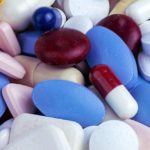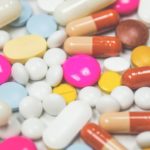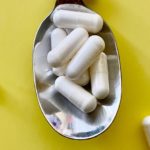Why are drugs addictive?
Drug addiction is a worldwide problem. Young people are especially prone to it since they seek quick excitement and pleasure. In the majority of cases, it is peer pressure when the first experience is offered. Once addicted, the young generation becomes a liability for the family and society.
Drug addiction is a disease in which a person engages in compulsive use of a particular drug due to its rewarding or pleasurable effects. It is characterized by a loss of control in limiting the use of a drug. An addicted person develops an irresistible urge to use the drug repeatedly resulting in physical and mental deterioration.
Addictive drugs
Addictive drugs produce a state of happiness, excitement, or a positive emotional state. This experience is rewarding and motivates the user to take the drug repeatedly. The craving for the drug and its availability maintain the vicious cycle of drug addiction. After prolonged use, the addict develops tolerance to the rewarding properties of the drug. It results in the intake of a higher dose to derive the same amount of pleasure. If the drug is not available, the addict develops depression and drug withdrawal or negative emotional symptoms.
Worldwide, alcohol and nicotine are the commonest sources of addiction. Other drugs associated with addiction are opiates (morphine), psychostimulants (cocaine, amphetamine, methamphetamine), marijuana, and phencyclidine. The effects of some of these drugs are given below.
Amphetamine: It induces a sense of euphoria and friendliness. A small dose improves attention and performance-related tasks like writing. The fatigue due to work is delayed and the pain threshold is increased.
Cannabis: Marijuana contains tetrahydrocannabinol, which is the main psychoactive substance. Its use results in euphoria.
Cocaine: It produces euphoria, a sense of well-being, and an increased level of alertness. There is a reduction in hunger and sleep. It is also believed to enhance sexual performance.
Opioids: Their use results in euphoria, especially after intravenous injection.
Phencyclidine: This drug, also called angel dust, produces a sense of dissociation from the environment. They develop feelings of fantasy, floating in the sky, alterations of body image, distortion of time and space.
The reason why drugs are addictive
Addicting drugs activate the parts of the brain associated with reward feelings. Addiction-causing drugs affect the neurotransmitters in the reward areas of the brain like the ventral tegmental area, locus ceruleus, and the nucleus accumbens. This occurs through an increase in the activity of dopamine in the brain. Some drugs activate opioid receptors in the brain producing a feeling of pleasure.
The pathological changes associated with addiction are not established through certain anatomical changes that have been demonstrated. The grey matter in the frontal region of the brain is reduced in people addicted to alcohol and stimulants. Functional studies like magnetic resonance imaging or positron emission tomography showed reduced activity in the anterior cingulate and orbitofrontal cortex of the brain. Damage to these parts of the brain may result in addiction due to impairment of decision making and aggravation of impulsive activity.
A positive history of addiction in the family is a risk factor. Heredity also plays a role in drug addiction. A few genetic mutations have been identified like chromosomes 4 and 5 related to alcohol addiction and the nicotinic acetylcholine receptor gene mutation on chromosome 15 associated with nicotine and alcohol addiction. Many addicts exhibit denial. They behave as if the drug which has caused addiction is not the main problem. The reasons for unwillingness to accept the obvious may vary among different people depending on their circumstances.
Drug availability and social acceptability are important contributors to addiction. These drugs also provide some degree of transient relief from depression, pain, and anxiety. Sometimes their use is related to status or ‘show off. Every time the drug is used, it results in positive reinforcement.
Drugs causing addiction primarily affect the reward areas of the brain. Their use results in craving which further motivates its consumption. There is a very high risk of intoxication resulting in morbidity and mortality. The earliest treatment is sought – the better is the likelihood of successful treatment.




























